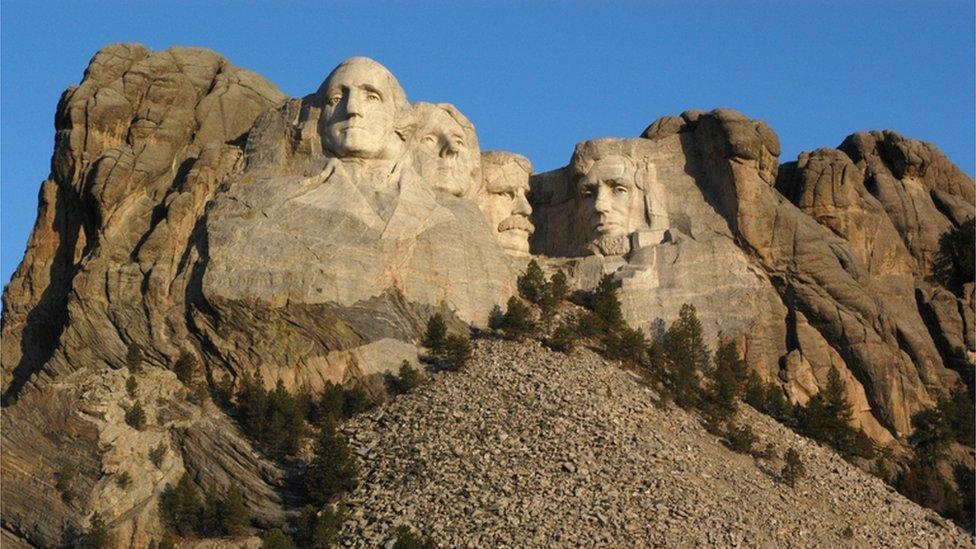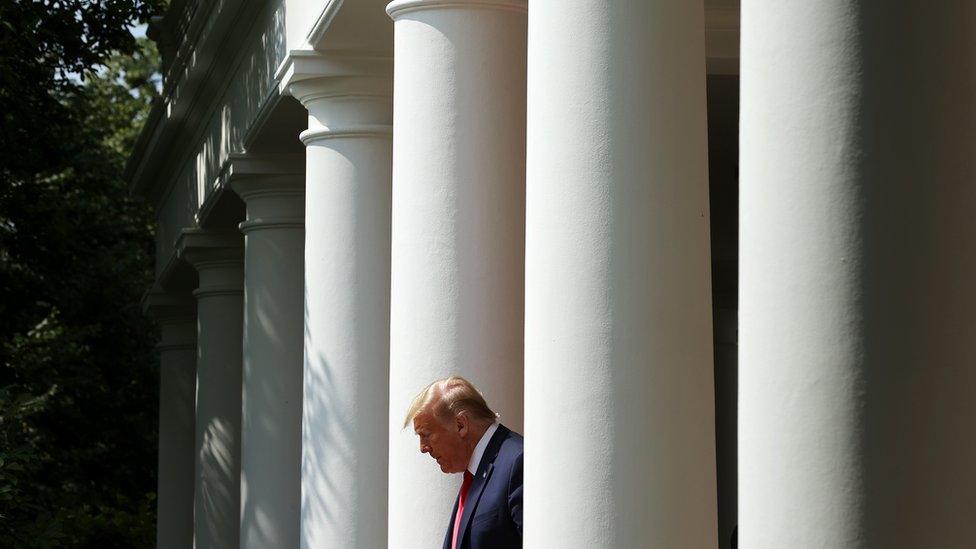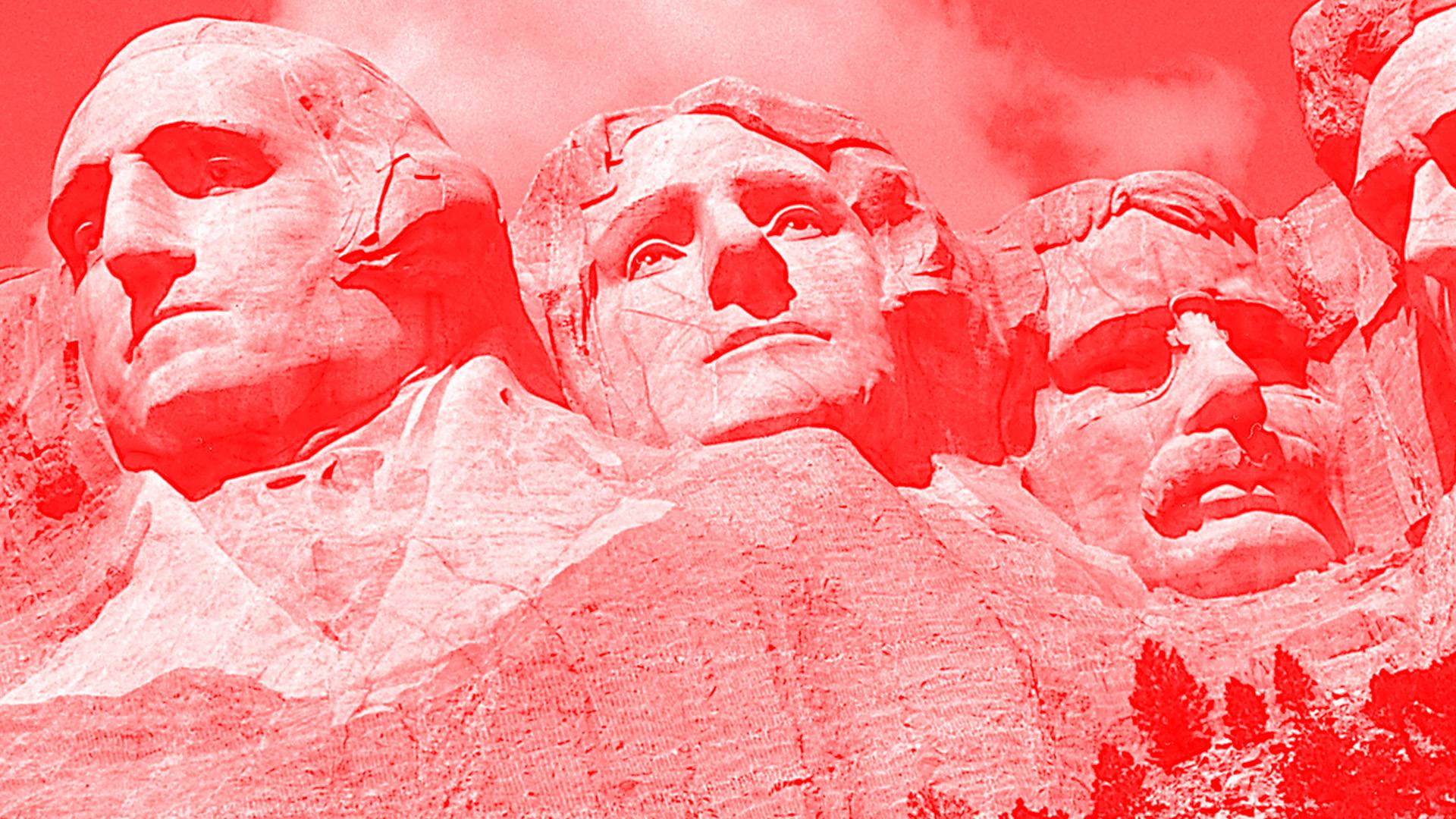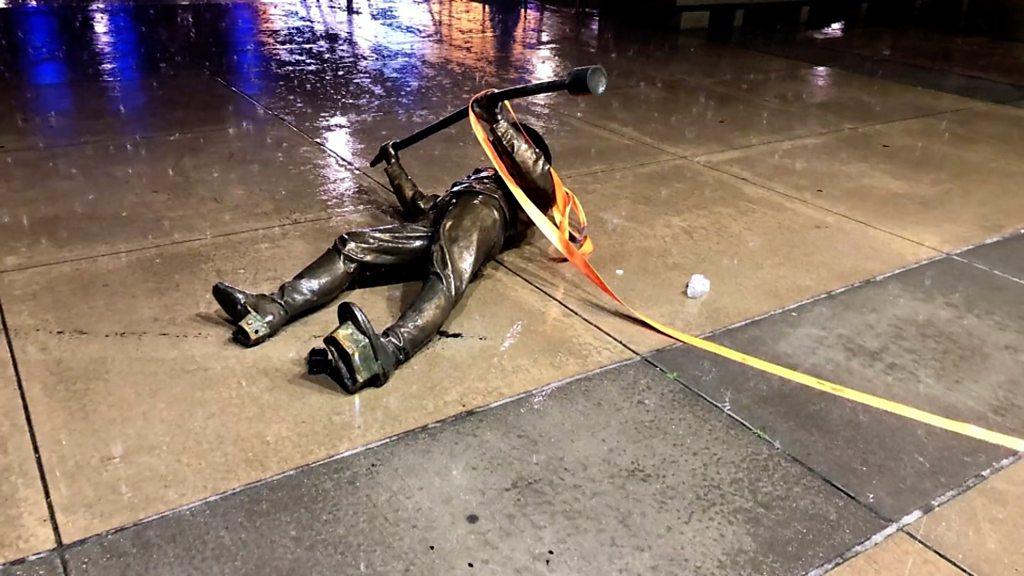Native Americans to protest against Trump visit to Mount Rushmore
- Published

Native American groups are planning to protest against President Donald Trump's visit to Mount Rushmore at the start of the Independence Day weekend.
Activists have long taken issue with the South Dakota monument to former US presidents, which was built on land sacred to the Sioux tribe.
Mr Trump will bring fighter jets and fireworks to Mount Rushmore on 3 July as his campaigning tour continues.
The controversial trip comes amid heightened racial tensions nationwide.
Mount Rushmore features the 60ft (18.2m) high faces of four US presidents: George Washington, Thomas Jefferson, Theodore Roosevelt and Abraham Lincoln.
The monument was carved into the granite rock face between 1927 and 1941.
But the land the memorial lies on - the Black Hills of South Dakota - was taken from the indigenous Lakota Sioux by the US government in 1800s.
Its sculptor was reportedly a white supremacist with ties to the Ku Klux Klan.
Some Native American activists say the land should be returned to the Sioux and the monument brought down. Others say indigenous groups should receive economic benefits from tourism to the site.
Oglala Sioux President Julian Bear Runner told the Argus Leader newspaper, external that Mr Trump did not consult with tribal leaders about his visit.
Another tribe member and local activist Nick Tilsen told the Associated Press, external the monument "is a symbol of white supremacy, of structural racism that's still alive and well in society today".
"It's an injustice to actively steal Indigenous people's land then carve the white faces of the conquerors who committed genocide."
The row over Mr Trump's visit comes as across the US, statues of leaders with ties to slavery have come down in the wake of the George Floyd protests.
The president is expected soon to sign an executive order to make any vandalism or destruction of public statues and federal monuments punishable by jail time.
On Thursday evening, he told a Fox News town hall in Green Bay, Wisconsin: "Every night we're going to get tougher and tougher [on statue protesters] and at some point there is going to be retribution because there has to be.
"These people are vandals, but they're agitators, but they're really, they're terrorists in a sense."
Monuments to George Washington and Thomas Jefferson - who both owned slaves - are among those that have been removed or torn down.
A statue of Theodore Roosevelt, featuring the former president flanked by a Native American man and an African man, in New York is also to be removed - a plan Mr Trump called "ridiculous".
But South Dakota's Republican Governor Kristi Noem rejected the notion that Mount Rushmore would be next, tweeting: "Not on my watch."
Mr Trump's planned visit made headlines earlier this month for his decision to host the first fireworks at Mount Rushmore in over a decade, despite environmental concerns.
The monument is surrounded by a national forest and some fear the display could set off wildfires in the dry brush.
But park officials said they were "confident" the fireworks could be conducted safely, the Washington Post reported, external.
- Published8 June 2020

- Published18 August 2017

- Published20 June 2020
